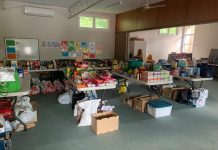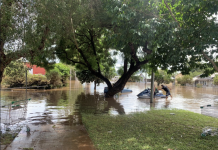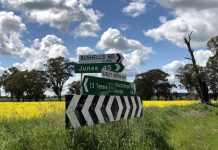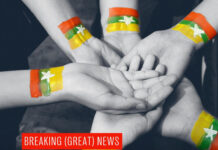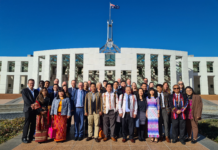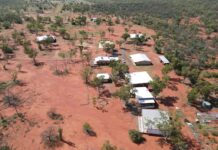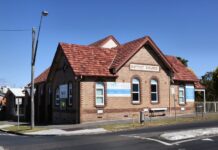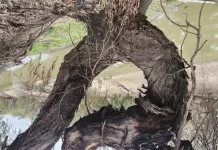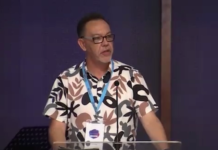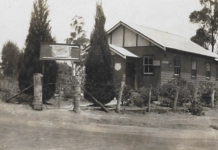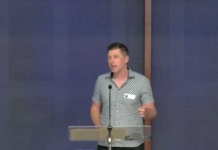
Before I left for work this morning, the radio announced there had been flash flooding in my local area. I could just imagine the chaos as cars attempt to navigate rising water levels on the road and gardens are washed away. It was a major inconvenience but a situation that we’ll recover from fairly quickly here in Australia.
These were the thoughts running through my mind as I watched a presentation given by Baptist World Aid’s Programs Manager for Africa, Steve Hamlin. He was showing some slides from his recent trip to Kenya where he had met with Mount Kenya Anglican Development Services (or ADS), a Christian partner working with communities susceptible to seasonal flood and drought events.
At first his slides seemed fairly uninteresting. They were pictures of Kenyan farmers smiling and pointing out strange, dirt-terracing in their fields. There were also family groups standing around admiring large holes that had recently filled with water. It was nothing much to look at. Steve told us how ADS was ‘really focusing’ on their disaster risk reduction programs. They’d been using their engineers and water experts to consult with local farmers about sustainable agricultural processes. I must admit to feeling more than a little bored at this point and thinking that this sort of aid and development work was not likely to get much media attention any time soon.
And then, slowly, I started to realise that this was the point.
In other communities in Kenya (which have not been a part of Baptist World Aid funded ADS programs) there are lots of stories making front page news. Stories of hunger, drought and villages where in excess of 70% of the men are forced to leave families to herd their cattle away in search of greener pastures and cash labouring jobs. There are articles being written about children left behind who are pulled out of school in order to work and of increased levels of malnutrition and domestic violence.
However in the communities undertaking ADS disaster risk reduction programs, there is little to report. As word spreads about the effect dirt-terracing has in stopping fertile topsoil erosion, local farmers are quietly transforming their land and increasing food yields. Families and communities are coming together to help each other dig ‘water pans’ in locations where experts have shown them stormwater gathers. It’s not terribly newsworthy stuff, yet these thousands of litres of extra water for agriculture and improved soil quality are changing lives in Kenya just as dramatically as plane loads of emergency supplies do in the wake of major disaster.
See, this is the problem with disaster risk reduction. It is so, well, undramatic. It involves lots of talking and community education and experts with charts and plans. It’s hard to photograph well and there are very few heart-wrenching stories of people ‘surviving despite terrible odds’.
Disaster risk reduction programs are simply calm and well thought out plans which empower and enable families living in poverty to build resilience. Their purpose is to ensure that if flood or drought or conflict situations arise, structures are in place so that emergency intervention isn’t required. They are, in effect, a newsroom’s worst nightmare as they build a world where poverty has ended and all people enjoy the fullness of life that God intends. Sadly, they are also very hard to raise funds for.
Baptist World Aid Australia has a number of disaster risk reduction programs waiting to be rolled out in some of the most vulnerable communities around the world. We have the plans and the experts ready to go. All we need now are people like you to commit financially to support this life-transforming work. Please, will you give so that every day can be a quiet news day without reports of mass casualties due to flood, mudslides or unseasonable weather?
To make a life-transforming gift, please call 1300 789 991 or visit www.baptistworldaid.org.au.

